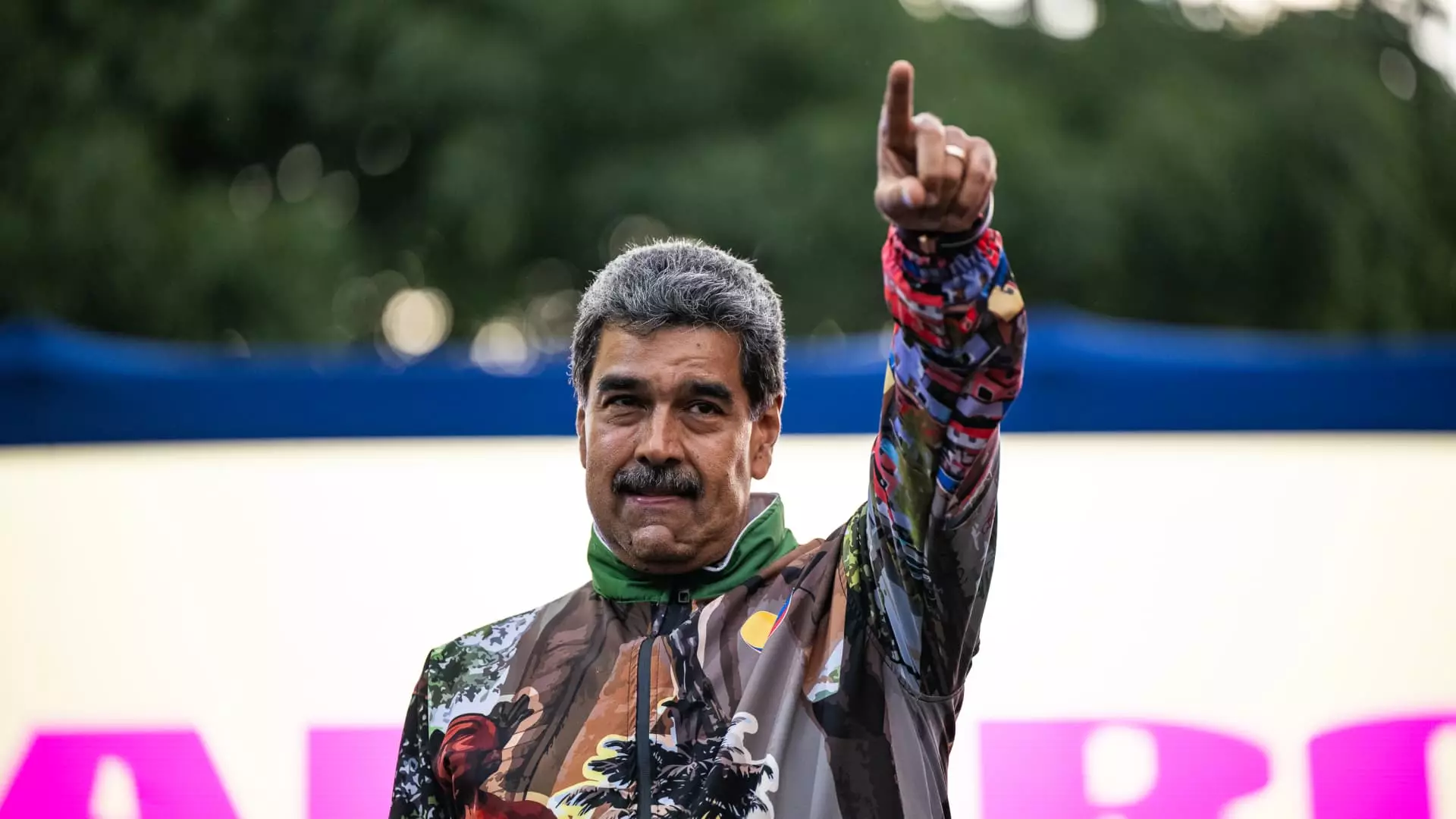Venezuela finds itself at a critical juncture as President Nicolás Maduro embarks on his quest for a third term during an election cycle that many analysts deem as the most competitive in recent years. The upcoming presidential election on Sunday represents an opportunity for substantial change in a country marred by political turmoil and economic collapse. However, the outcome hangs in the balance, contingent upon Maduro’s willingness to concede power in the event of defeat.
In a landscape where political rivalries have defined the past decade, Maduro’s United Socialist Party of Venezuela (PSUV) has maintained a tight grip on power, especially since he ascended after the death of Hugo Chávez in 2013. The electoral process has been marked by allegations of unfair practices, including the disqualification of major opposition candidates, which has made it difficult for any rival to mount a serious challenge in the past. However, the emergence of Edmundo González Urrutia, a former diplomat backed by Venezuela’s main opposition coalition, introduces a new dynamic to the electoral race. Polls have suggested a growing preference for González, who stands out as a renewed hope for a populace weary of the ongoing crisis.
González’s selection follows the barring of prominent figures like María Corina Machado and Corina Yoris from running, demonstrating the precarious nature of the opposition as they navigate through restrictions designed to diminish their influence. The actions of the Maduro regime to limit dissent have not only cast doubt on the integrity of Venezuela’s electoral framework but also raised concerns about potential violence—an issue that has been highlighted in recent weeks amid a spate of rhetoric from Maduro regarding civil unrest.
Maduro has escalated warnings about possible post-election violence, suggesting that any outcome other than a resounding victory for his party could lead to chaos. The statement made at a rally asserting the “destiny of Venezuela” hinges on a successful election outcome underlines the political stakes at play. This sentiment has echoed internationally, with U.S. officials expressing alarm about the potential for conflict. National security spokesperson John Kirby emphasized that the U.S. is closely monitoring the situation, urging Maduro to commit to peaceful electoral processes regardless of the results. The stance taken by Brazil’s President Luiz Inácio Lula da Silva further illustrates a regional concern over stability in Venezuela, reiterating the importance of respecting democratic outcomes.
Analysts predict that the opposition may declare victory based on internal exit polls, which could intensify the political climate in the aftermath of the election. Andre Masuko, a research analyst at the Economist Intelligence Unit, indicated that even with declared victories from the opposition, the brutal reality remains—Maduro’s control over state institutions and security forces positions him favorably to cling to power.
The backdrop to this contentious electoral cycle is a deepening socioeconomic crisis that has led to the massive exodus of Venezuelans—over 7.7 million people have fled since 2014 in search of better opportunities. Factors such as rampant inflation, gang violence, and extreme shortages of basic necessities have transformed Venezuela’s crisis into one of the largest displacement challenges globally. These issues have exacerbated public discontent and have prompted demands for change within the country.
Despite the severe economic downturn, there are indications of recovering growth; the International Monetary Fund (IMF) projects a modest GDP growth of 4% for 2024. However, the resilience of the Maduro regime in face of internal strife challenges these optimistic economic forecasts. Analysts contend that blaming external sanctions for national woes is a tactic employed by the Maduro government to deflect responsibility for the crises that predate the sanctions imposed in 2019.
As Venezuela approaches this critical moment, the political narrative extends beyond its borders. The U.S. administration appears poised to pursue a pragmatic approach—one that emphasizes the restoration of competitive politics and enables dialogue surrounding sanctions. Such efforts underscore the international interest in a resolution to Venezuela’s political division and economic hardship.
Looking ahead, the election will not only test Maduro’s hold on power but also signal the extent of change that Venezuelans can expect in the years to come. While a transition of power remains a possibility, it ultimately depends on the political will of both Maduro and the burgeoning opposition. The world watches closely, mindful that this election could either reinforce the incumbent’s grip or herald a new chapter in Venezuela’s tumultuous political saga.


Leave a Reply